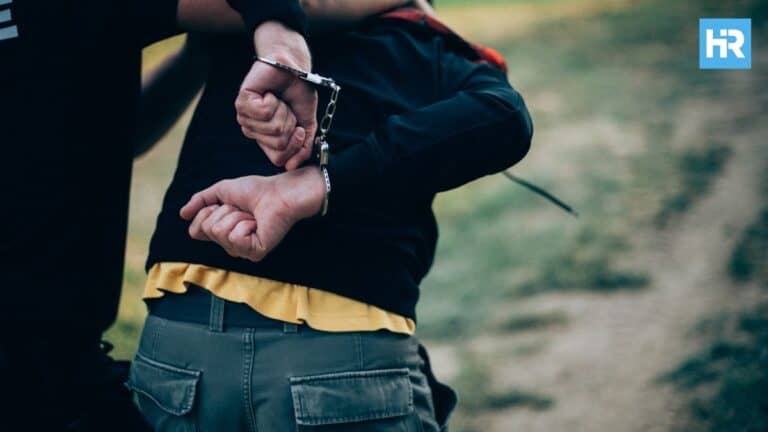
Nassau County has made its first arrest under the new law banning face masks meant to hide identities.
With this move, the debate heats up about whether the law is fair and how it affects both public safety and individual rights.
- An 18-year-old faces charges for violating Nassau County’s new mask ban, marking the first enforcement of this law.
- The law, aimed at preventing crime, has led to widespread debate over its fairness and potential for discrimination.
- The case brings attention to the balance between ensuring safety and protecting individual rights in the community.
The First Arrest Under Nassau County’s Mask Ban
In Nassau County, the police made their first arrest under a new law called the Mask Transparency Act on a Sunday night near the border between Levittown and Hicksville, about 30 miles from Manhattan.
The police responded to reports of a suspicious individual and, when they arrived, encountered 18-year-old Wesslin Omar Ramirez Castillo, who was dressed in black and wearing a ski mask that only left his eyes visible.
His behavior raised suspicion, particularly when he tried to conceal a large bulge in his waistband.
Upon further investigation, police found the bulge was a 14-inch knife. Although Ramirez Castillo initially resisted, he was arrested without further incident.
He now faces charges in court for weapon possession, obstructing the police, and violating the new mask law.
The Mask Transparency Act: Law Enforcement Tool or Potential Overreach?
The Mask Transparency Act, recently signed into law by Nassau County Executive Bruce Blakeman, prohibits wearing masks intended to hide one’s identity in public.
The law was introduced in response to an increase in antisemitic incidents but includes exceptions for masks worn for health, safety, religious, or cultural reasons.
Police Commissioner Patrick Ryder and Executive Blakeman defended the law, stating it provided the necessary grounds for police to stop Ramirez Castillo and prevent a possible crime.
Ryder claimed that Ramirez Castillo admitted he was instructed to wear the mask and given the knife to commit a robbery.
However, the law has its critics. Keith Ross, a criminal justice professor at John Jay College, argued that while the law may provide reasonable suspicion for a stop, police are not necessarily required to take action in such cases.
On the other hand, Scott Banks, attorney-in-chief at the Legal Aid Society of Nassau County, challenged the legality of the stop, saying that there was no clear evidence that wearing a face mask was intended to conceal criminal behavior.
Community Reactions and Legal Challenges to the Mask Ban
People in the community have mixed reactions about the mask ban. Some, like retired officer Edwin Elias, think it helps keep people safe.
Others worry that the law might negatively affect vulnerable groups, like elderly people or those with medical issues who need to wear masks.
Additionally, the law is facing legal challenges. Disability Rights of New York has filed a lawsuit, arguing that the mask ban discriminates against people with disabilities and violates constitutional rights.
Also, the New York Civil Liberties Union warned that the law could be used unfairly by the police.
Despite these concerns, Nassau County officials have dismissed the criticisms, with Executive Blakeman labeling the lawsuits as “frivolous.”









